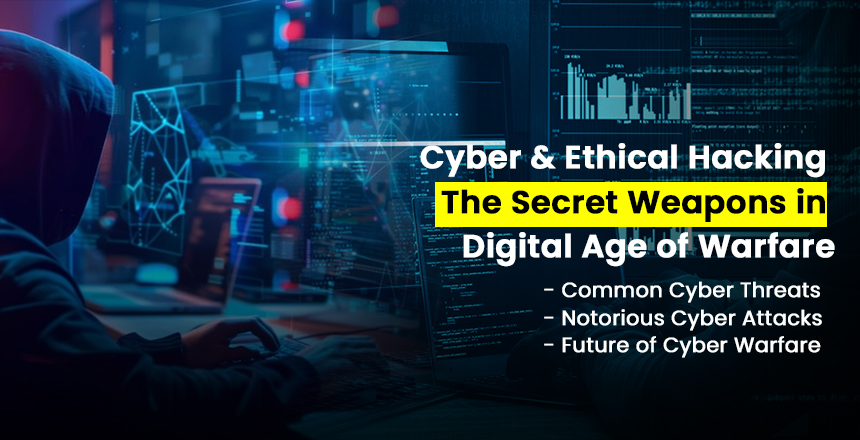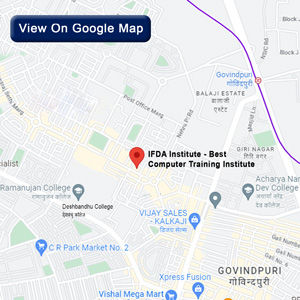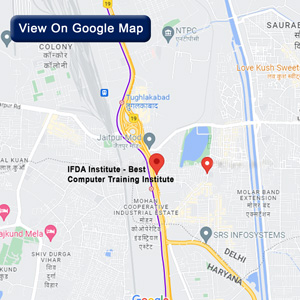Computer and ethical hacking have become real strategic secrets in the age of information warfare. The current reliance of militaries and governments around the world on networked computers and systems makes them susceptible to attacks from external nation-states or STs. On the other hand, the strategic benefits of cyber capabilities are substantial, in that they can give a definitive advantage to the group that happens to boast superior hackers and hacking tools.
The definition of cyber warfare could be described as operations in the context of cyberspace that are designed to attack, neutralize, or infiltrate an opponent’s computers and their networks. It seeks to defeat an adversary’s ability to coordinate and supervise your forces in addition to seizing its key infrastructures, such as electricity, power, financial, transport, or communication networks. Cyber weapons can steal and reveal personal, business, and government data, promulgate false or deceptive information or ideologies, erase vital data or contaminate the data, or deny access to websites and networks.
Ethical hacking can be defined as hacking that is conducted by certificated specialists with the purpose of checking or estimating the security level of the given organization’s digital assets. Others are called ‘white hat’ hackers, and their activities involve searching for loopholes in organizational networks and systems that the black hat hackers may perpetrate. An additional vital function of ethical hacking is to reveal the vulnerabilities in one's protective digital environment that need protection during cyber warfare. By contrast, ethical hackers may need to reflect the actions of hostile hackers in order to better understand what motivates them.
More and more, contemporary battles in tactical conventional and irregular warfare hinge upon the concept of cyber domain superiority. One has to understand that the developed cybertools can severely damage an opponent’s military infrastructure and processes. Intermference with the guidance or the targeting system could cause the missiles to change direction. There is no superior source of knowledge regarding both the strategic plans for war and the operational aspects of the enemy than by infiltrating classified communication channels. Adversaries in the military can find their financial operations affected by cyber incidents centered on their banking and financial systems. Such strategies as putting out inaccurate information in public venues and the media are vital during this effort to transform perceptions and attitudes.
Cyber warfare has taken a long time to widen contemporary warfare not only in geographical space but also in networked systems that encompass both civilians and military data systems, located at widespread geographic locations. Modern cyber warfare is hardly noticeable because almost all aspects of life, including power, transport, communication, and financial activities, rely on the Internet and vulnerable computer systems. Whole economies and societies can also feel the described effect of large-scale cyber attacks on critical infrastructure. The connectivity that has been such a great benefit with the same risks multiplying vulnerabilities, which can be easily and subtly breached through hacking.
The obscurity, diminutive size, and intricacy of cyber operations have resulted in novel battle tools in asymmetric warfare. Those who are on the relatively lower end of the spectrum can deal a significant blow to stronger enemies by hacking through their cyber-security. The fact that it is also hard to definitively trace the source of cyber attacks adds uncertainty and a potential for volatile escalation. The overall entrance barriers are relatively low because advanced tools and equipment are easily obtainable, and it is almost impossible to track the source of the attack. Large-scale cybercrimes have already led to the cumulative loss of billions of dollars and, in addition, provoked interstate conflicts, such as between the United States, China, Russia, Iran, and North Korea.
This is leading to a shift in espionage as cyber weapons continue to be seen as very valuable, extremely valuable. Governments around the world are increasingly probing one another for advanced cyber abilities and how they might be exploited. Trespassing physical security measures has enabled major powers such as the US, Russia, and China to enhance their cyber arsenals by stealing hi-tech tools. Certainly, cyber weapon programs are among the highest classified since the benefits they offer are enormous. It is now a fact that states have a well-established market in which cyber weapons and cyber vulnerabilities can enhance their capabilities.
Cyber protection is a strategic imperative as much as the cyber attack capability. This, however, is very challenging given constantly emerging technologies, evolving strategies, and the endless stamina of attackers. The vulnerability While it comes in the form of system or software vulnerabilities, it is actually mainly a human factor. In conversations about the rising sophistication and changes in cyber threats, we should emphasize defense in depth, and we can’t just depend on perimeter defense. Automating these systems requires them to be capable of predicting attacks, immediately containing and patching, and concurrently continuing the most crucial services.
As a result, management of cyberspace, along with access to it, with opportunities for security and the ability to perform operations, has now become critical and necessary for acquiring superiority in today’s warfare. Some of the newer age weapons possessed by militaries in contemporary societies are cyberspace weapons and ethical hacking simply because they are unseen weapons that can turn the scale of any conflict without firing a single bullet. However, the freely launched such weapons also entail great risks of an unpredictable reaction and escalation with the destruction of global financial and economic security. In the modern world of the orientation to new types of power determining by the cyberpower, setting patterns for the definition of proportional response is highly significant for the management of this fragile balance.










